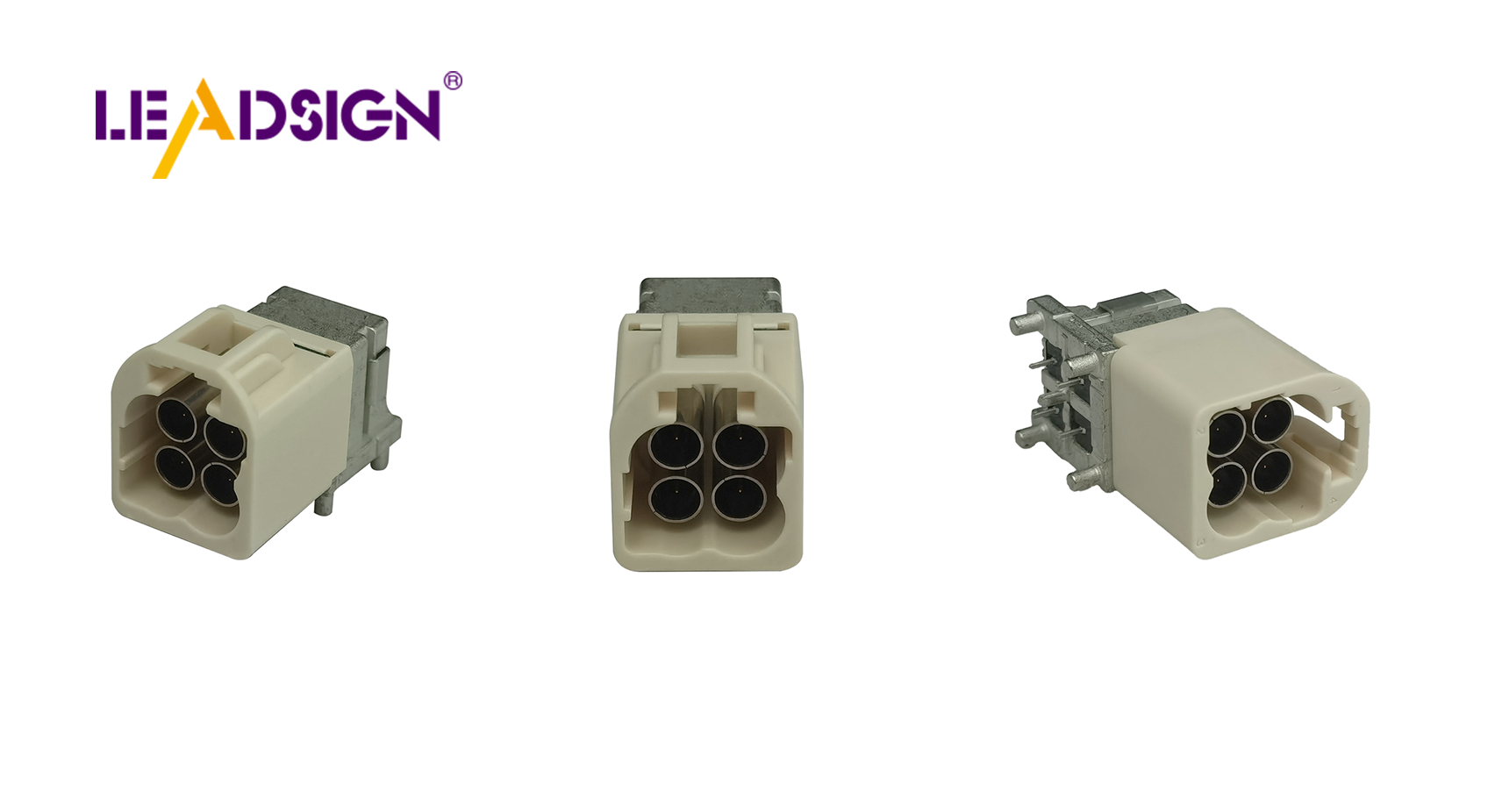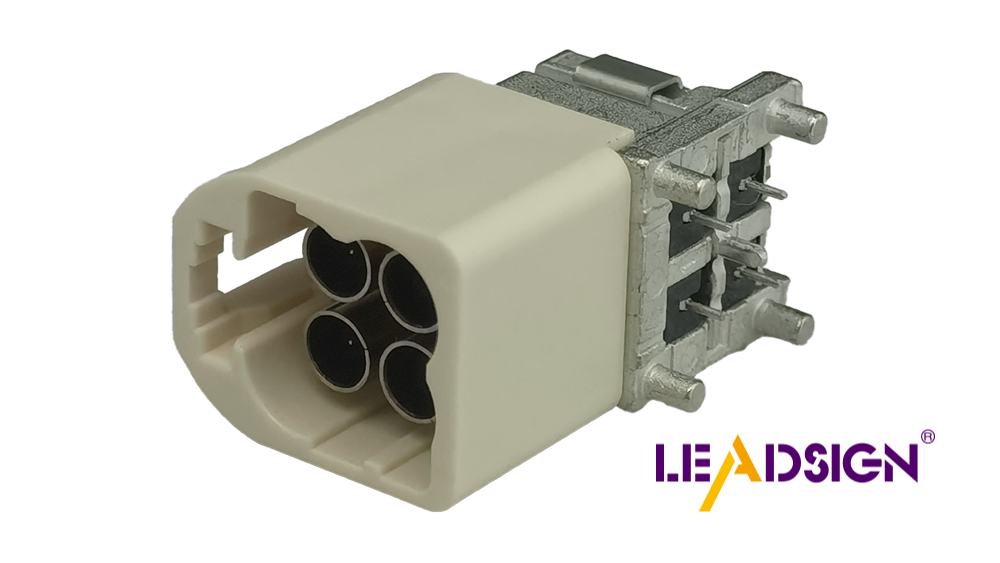The Complete Guide to Automotive Wiring Connector Types

In cars, automotive electrical connectors types are very important. They keep electrical connections working well. Without them, your car's electrical system might break often. There are different types of connectors for different uses. Each type is made for certain jobs. These connectors must handle heat and power flow. They can fail more than regular wires because of open parts and hard covers. Knowing about these connectors helps you keep your car's electrical system strong.
Understanding Automotive Wiring Connectors

Definition and Purpose
What are Wiring Connectors?
Wiring connectors are key parts in a car's electrical system. They join circuits so power and signals can move smoothly. These connectors have different shapes and sizes for various uses. You see them linking single wires or complex wire groups. This helps all car parts work well together.
Importance in Automotive Systems
In cars, wiring connectors are very important. They make sure electronic parts connect properly. Without them, the car's electrical system might often fail. Connectors like pin, blade, and bullet types give strong connections. This strength is needed for systems like engine control and audio to work well. Using the right connectors keeps your car safe and working its best. Learn more about different types of automotive connectors.
Basic Components of a Connector
Housing
The housing is the outside part of a connector. It shields inside parts from things like water and dust. The housing also gives support to keep the connector steady during shakes or bumps. When picking a connector, think about the housing material. Strong materials last longer in tough car conditions.
Terminals
Terminals are metal pieces inside that connect electricity. They come as crimp or solder types for different jobs. Good terminals mean better power flow with less resistance. Choose connectors with terminals that fit your car’s power needs.
Seals
Seals protect inside parts from water and dirt getting in. They keep connections safe from rusting over time. In cars, seals matter because of changing weather conditions outside. Weatherproof connectors with good seals stop problems from moisture changes happening.
Types of Car Electrical Connectors
Knowing car electrical connectors is key to keeping your car's system working. These connectors have different shapes and sizes for special jobs. Let's look at the main types by how they connect, what they do, and how they're made.
By How They Connect
Crimp Connectors
Crimp connectors are common in cars because they're easy and reliable. You use them by squeezing a metal piece around a wire for a tight fit. This way, electricity flows well with little resistance. They're great where there's lots of shaking since they hold wires firmly.
Solder Connectors
Solder connectors make strong links by melting metal around wires. They work well where high power flow is needed but take more skill than crimping. Use solder connectors where you won't need to take them apart often.
By What They Do
Power Connectors
Power connectors carry lots of electricity for things like batteries and engines. They must handle heat well to keep power flowing safely. When picking these, check how much power they can carry so they don't overheat or break.
Signal Connectors
Signal connectors send small electric signals between parts like sensors. They need to be precise to avoid losing data. Choose ones with enough pins and protection from outside interference for clear data sending.
By How They're Made
Male and Female Connectors
Male and female connectors fit together tightly, making a good link. The male part has pins that go into the female part's holes. This stops them from coming apart by accident, useful when connecting parts often.
Waterproof Connectors
Waterproof connectors keep water away from connections using seals. They're perfect for wet places like rain or snow areas. Pick waterproof ones based on how much protection your job needs for lasting use.
By knowing these connector types, you can pick the right ones for your car, helping it run smoothly and reliably.
Choosing the Right Connectors
When picking car wiring connectors, think about some important things. These help your car's electric parts work well and last long.
Electrical Needs
Current Amount
Current amount shows how much electricity a connector can handle. Pick connectors that meet or go above your car's needs. Things like power windows need more current. Wrong ones can overheat and break.
Voltage Level
Voltage level is also key. It tells how much voltage a connector can take. Make sure they match your car's voltage to avoid problems like short circuits.
Weather Conditions
Temperature Changes
Connectors must handle hot and cold weather. Choose ones that work in all temperatures, especially if you drive in different climates.
Wetness Exposure
Water can harm connectors. Use waterproof ones if your car is in wet places often. They stop water from getting inside and keep them safe.
Physical Features
Strength
Strength matters because cars shake a lot. Look for strong connectors with good locks to keep wires safe.
Easy Setup
Easy setup helps if you change connectors yourself. Pick ones that are simple to plug in and out without breaking them.
By thinking about these things, you pick the right connectors for your car, keeping it running safely and smoothly.
Tips for Using Car Wiring Connectors
How to Install Them Right
Crimping the Right Way
When you put in car wiring connectors, crimping is key. Crimping means squeezing metal around a wire to hold it tight. Use a good crimp tool that fits your connector. Strip the wire to the right length and push it all the way in before crimping. This helps electricity flow better so your car works well.
Keeping Connections Tight
Tight connections stop electric problems. After crimping, pull the wire gently to check it's tight. Cover it with heat shrink or tape to keep water out and stop rust. This keeps connections strong, even in tough places.
Checking and Fixing Problems
Look Often
Check your car wiring connectors often to keep them working well. Look for wear, rust, or loose wires. Finding these early stops bigger problems later. Check connectors when you do regular car checks.
Find and Fix Common Problems
Common connector problems are rust, loose wires, and broken seals. If rusty, clean with contact cleaner. Tighten loose wires so they stay put. Change bad seals to keep water out. Fix these fast to make connectors last longer and keep your car's electric system reliable.
Expert Tip: "Ensure the connector keeps circuits safe inside and lowers contact issues or electric troubles for device safety."
Follow these tips to install and care for car wiring connectors right. This will help your car's electric systems run smoothly and safely. improve auto wire performance
Picking the right car wiring connector is very important. It helps keep your car's electrical system working well. Choose connectors that fit what you need them for. This makes sure everything works safely and lasts long. The right choice makes your car's systems work better and last longer. boost automotive wiring
"A good connector can make things smaller, lighter, and easier to use, stopping problems before they start."
Use this information to take better care of your car. Doing this makes driving safer and keeps your car's electrical parts working longer.
See Also
Navigating Ford Fakra Connectors: A Complete Overview
An Extensive Look at HSD Connectors
Essential HSD Connector Knowledge for Automotive Professionals

